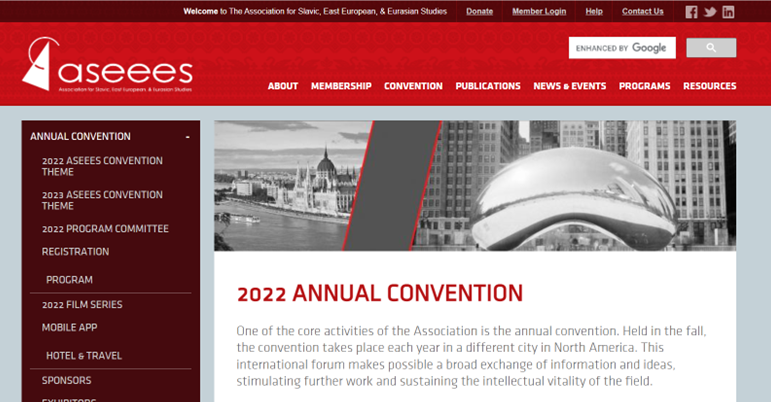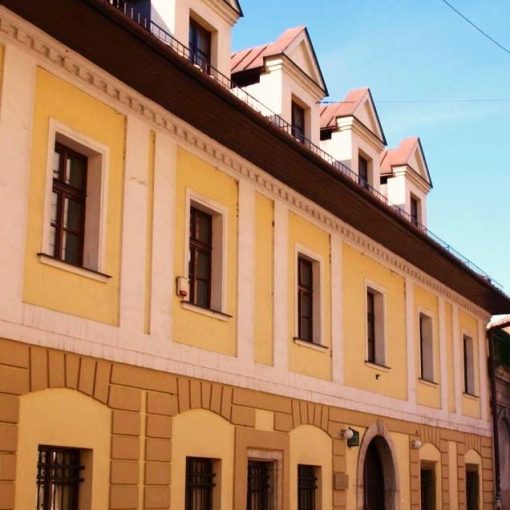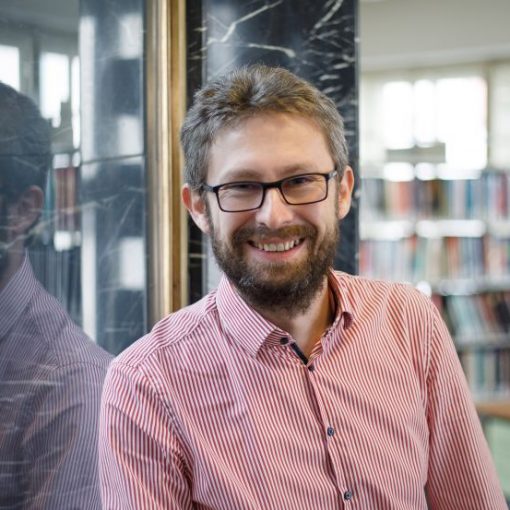The team members of the “Unlikely Refuge?” ERC Project will participate at this year’s convention of the Association for Slavic, East European, and Eurasian Studies (ASEEES). The event will take place in Chicago, USA, between 10-13 November 2022.
Chaired by Michal Frankl (Principal Investigator), the panel entitled Humanitarianism and Refugee Aid in Cold War Europe: Across the East/West Divide (10 November, 3:15 to 5:00pm CST) will host papers by Julia Reinke and Maximilian Graf. This panel examines humanitarian practice (and its discursive context) in three different political environments during the ‘long’ fifties. Julia Reinke will explore what the arrival of Greek child refugees in a state socialist country, the German Democratic Republic meant for local understandings of humanitarianism, Maximilian Graf will present a case study of how the post-1956 Hungarian refugee crisis affected international humanitarian action in a neutral country (focusing on Tyrol, in order to gain a deeper understanding of a less exposed local history), and Tamás Scheibner will examine social reactions in the UK, a country on the western pole of the Cold War, and how the refugee crisis affected humanitarian practices in British society. Through case studies from three different political contexts, the panel analyzes the various ways refugee crises create precarious conditions not only for refugees, but also to members of the host societies with effects on how humanitarianism has been understood, historically and nowadays. Click here to learn more on Julia’s paper on “Humanitarianism or Solidarity?: Aiding Greek Refugee Children in the Early German Democratic Republic”; and here for Maximilian’s paper on “Humanitarianism in the Alps: Hungarian Refugees in Tyrol 1956-57.”
Together with Michal Frankl as the discussant, Lidia Zessin-Jurek will join the panel entitled Refugees Then and Now: Holocaust Memory in Responses to the Current Humanitarian Crisis on the Polish-Belorussian Border (13 November, 10:00 to 11:45am CST). Since August 2021, hundreds of refugees, mostly from the Middle East, have roamed the same primeval forest on the Polish-Belarussian border where many Jews sought hideouts during the Holocaust. For the first time since the war, the ongoing humanitarian crisis has confronted the Polish society with people whose survival came to depend on Poles’ aid. Half a year later, following Russia’s invasion of Ukraine, over a million refugees entered Poland within a course of two weeks. This panel examines references to the war and the Holocaust in responses to the situation on the border and reception of refugees. Bringing together scholars of history and memory, it examines both the public discourse and individual responses of local residents and activists. You can read the abstract of Lidia’s paper on “The Uses of Comparison: Refugee Crises at the Polish Border 1939 and 2021” here.
Finally, Doina Anca Cretu will participate at the panel entitled Pupils into Czechs, Slovenes, Germans, …: Habsburg Schools, Categorization, and National Identifications (12 November, 8:00 to 9:45 am CST). Universal compulsory elementary education makes nations, they cannot exist without schools. However, while schools can deliberately propagate a certain national or transnational identification, their very structure and daily operation can help create and reproduce a different one. At the level of ideology, schools can propagate a non-national imperial patriotism, while they can be producing particularistic national identifications by grouping pupils according to ethnolinguistic categories and/or by employing such categories in textbooks and teaching.
Habsburg schools provide a good example of the latter. While they—on purpose and quite successfully—promoted imperial patriotism, the largely unintended role they played in promoting national identifications is hard to overlook. The panel will examine how the emergence and the continued existence of Habsburg nations as viable modes of group building are related to the presence and employment of various national categorizations in schools. The papers will examine these categorizations, their history, the situations in which they were used, and their effects on pupils’ identifications, as well as how and when national identifications were intertwined with regional and imperial patriotism. The title of Anca’s paper is “‘War is destructive, but it reconstructs anew…’: Schools, Language, and State-building in Austria-Hungary’s Refugee Camps during the First World War.” You can view the abstract here.



